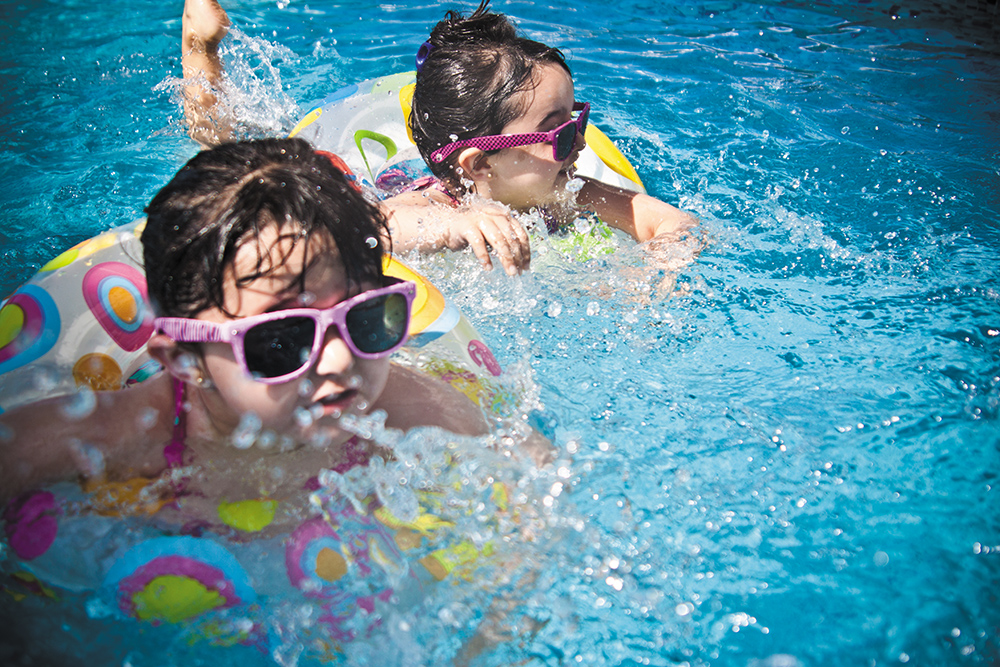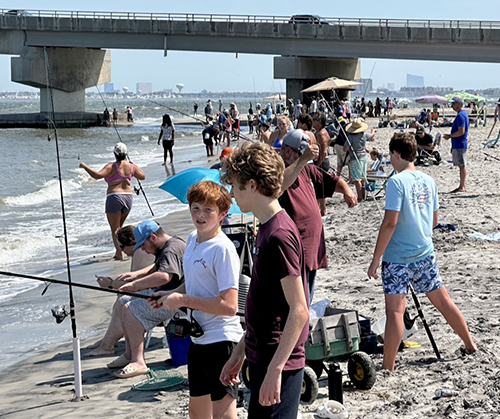Raising A Mindful Generation
By Karina Sanchez and Bailey Hurst
Arthur Ashe once said, “One important key to success is self-confidence. An important key to self-confidence is preparation”. As a member of a generation whose preparation is found the night before an exam and confidence is located behind screens it’s clear this quote needs to be addressed. The one true event we’ve all seen: countless teens prepare for their drivers test. Everyone completes a mandatory written exam before being seated behind the wheel. But the preparation doesn’t stop there. All students of the drivers Ed program are required to complete six hours of driving with an instructor before being awarded with their drivers permit. This preparation leads to the confidence needed to pass the drivers test and to safely navigate the roads. This confidence and preparation is nowhere to be found while taking the boating exam. Most teens see our back bays as a summer playground, a place to forget about road signs and traffic laws, a place to just sit back and enjoy summer festivities. This carefree mindset can be detrimental to the boating community and the next generation of captains and sailors.
Between having fun and checking local conditions, not many people remember the one most important skill when you’re in or around the water: the ability to think safely. The ability to think safely comes from the development of good judgment. It’s needless to say that the first mandatory aspect of water safety is the aptitude of swimming. Kids should be introduced to swimming as early as their first contact with the water. Once a child develops muscle memory and feels safe handling the different situations on the water, it’s time to understand the basics of water safety. There are not many things to remember but they should absolutely be part of their subconscious thought:
1. Life Jackets are a MUST.
Set the example. Always carry and wear life jackets on any type of vesselor board. Life jackets nowadays are inexpensive, comfortable and they will helpprevent drowning.
2. Always watch out for your buddy.
Having a buddy will always be a safety precaution to any water activity. Whether you are swimming, diving, sailing, canoeing or just relaxing by the pool, always have someonewith you and always let someone know of your plans. Buddies stay together, monitor each other, and alert if either needs assistance or is missing.
3. Communication is key.
Kids need to learn the importance of communicating when they need help. The ability to communicate effectively onthe water is vital to continued safety and enjoyment. Always carry at least TWO reliable forms of communication. Marine radios, cellphones and visual distress signals are a few different types of communication you’ll want to have on board
4. For the hundredth time: wear sunscreen and stay hydrated!
It doesn’t matter if it’s sunny, rainy or cloudy out. Make sure drinking water and applying sunscreen is a habit within your family and children.
5. Take care of your equipment and your equipment will take care of you.
Just like getting the oil changed or replacing the tires of a car, taking care of your boats and boards will make your time in the water safer and more enjoyable.
6. Checklists are simple and useful tools for any activity on the water.
Browse for a few references and customize your personal checklist based on your family profile and equipment. Kids and teens should go through them in every occasion possible in order to learn with repetition.
Everyone is looking forward to a nice, relaxed summer here at the shore. Let us not forget the importance of keeping our family and friends safe and informed about what is acceptable and what behaviors should be avoided when in and around the water. We must continue to raise a safe and informed generation. As Summer 2020 kicks off, remember the few simple things that will help make your time on the water safe and enjoyable for all.






